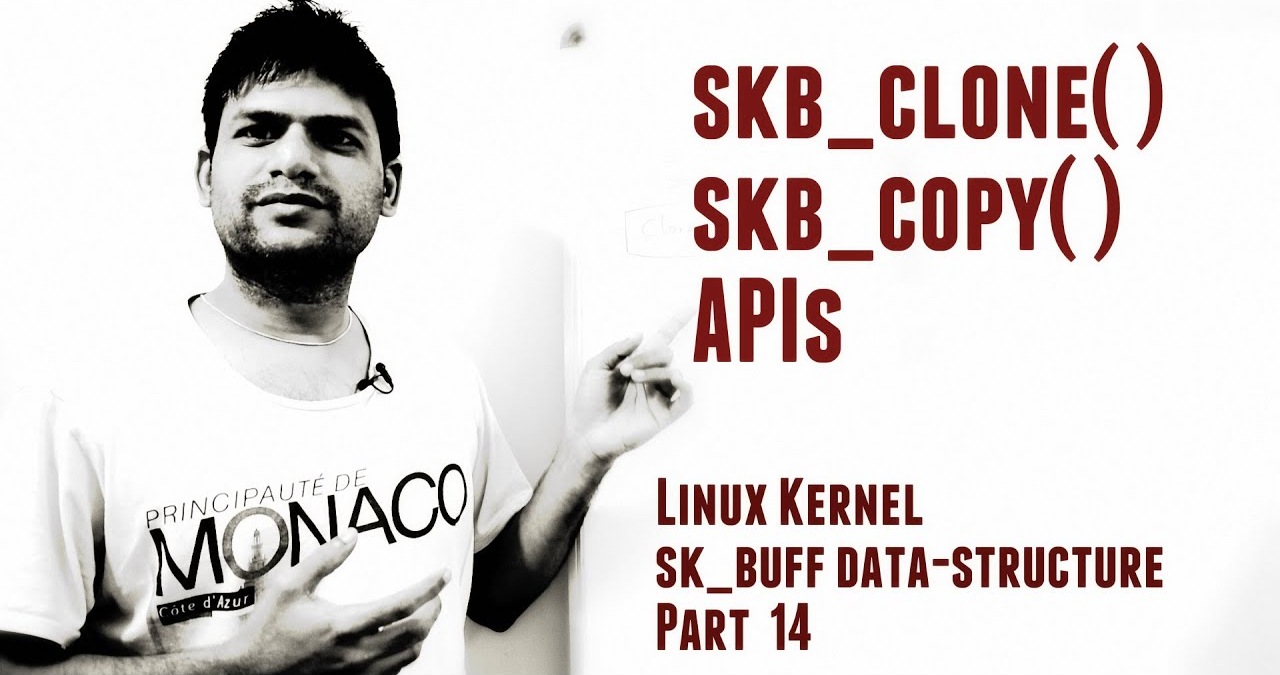Refer:
skb_clone() – duplicate an sk_buff ↗
skb_copy() – create private copy of an sk_buff ↗
Here is the copy paste of skb_clone() and skb_copy() APIs (/net/core/skbuff.c) from the Kernel-source version 6.5.9 for quick reference:
/**
* skb_clone - duplicate an sk_buff
* @skb: buffer to clone
* @gfp_mask: allocation priority
*
* Duplicate an &sk_buff. The new one is not owned by a socket. Both
* copies share the same packet data but not structure. The new
* buffer has a reference count of 1. If the allocation fails the
* function returns %NULL otherwise the new buffer is returned.
*
* If this function is called from an interrupt gfp_mask() must be
* %GFP_ATOMIC.
*/
struct sk_buff *skb_clone(struct sk_buff *skb, gfp_t gfp_mask)
{
struct sk_buff_fclones *fclones = container_of(skb,
struct sk_buff_fclones,
skb1);
struct sk_buff *n;
if (skb_orphan_frags(skb, gfp_mask))
return NULL;
if (skb->fclone == SKB_FCLONE_ORIG &&
refcount_read(&fclones->fclone_ref) == 1) {
n = &fclones->skb2;
refcount_set(&fclones->fclone_ref, 2);
n->fclone = SKB_FCLONE_CLONE;
} else {
if (skb_pfmemalloc(skb))
gfp_mask |= __GFP_MEMALLOC;
n = kmem_cache_alloc(skbuff_cache, gfp_mask);
if (!n)
return NULL;
n->fclone = SKB_FCLONE_UNAVAILABLE;
}
return __skb_clone(n, skb);
}
EXPORT_SYMBOL(skb_clone);/**
* skb_copy - create private copy of an sk_buff
* @skb: buffer to copy
* @gfp_mask: allocation priority
*
* Make a copy of both an &sk_buff and its data. This is used when the
* caller wishes to modify the data and needs a private copy of the
* data to alter. Returns %NULL on failure or the pointer to the buffer
* on success. The returned buffer has a reference count of 1.
*
* As by-product this function converts non-linear &sk_buff to linear
* one, so that &sk_buff becomes completely private and caller is allowed
* to modify all the data of returned buffer. This means that this
* function is not recommended for use in circumstances when only
* header is going to be modified. Use pskb_copy() instead.
*/
struct sk_buff *skb_copy(const struct sk_buff *skb, gfp_t gfp_mask)
{
int headerlen = skb_headroom(skb);
unsigned int size = skb_end_offset(skb) + skb->data_len;
struct sk_buff *n = __alloc_skb(size, gfp_mask,
skb_alloc_rx_flag(skb), NUMA_NO_NODE);
if (!n)
return NULL;
/* Set the data pointer */
skb_reserve(n, headerlen);
/* Set the tail pointer and length */
skb_put(n, skb->len);
BUG_ON(skb_copy_bits(skb, -headerlen, n->head, headerlen + skb->len));
skb_copy_header(n, skb);
return n;
}
EXPORT_SYMBOL(skb_copy);